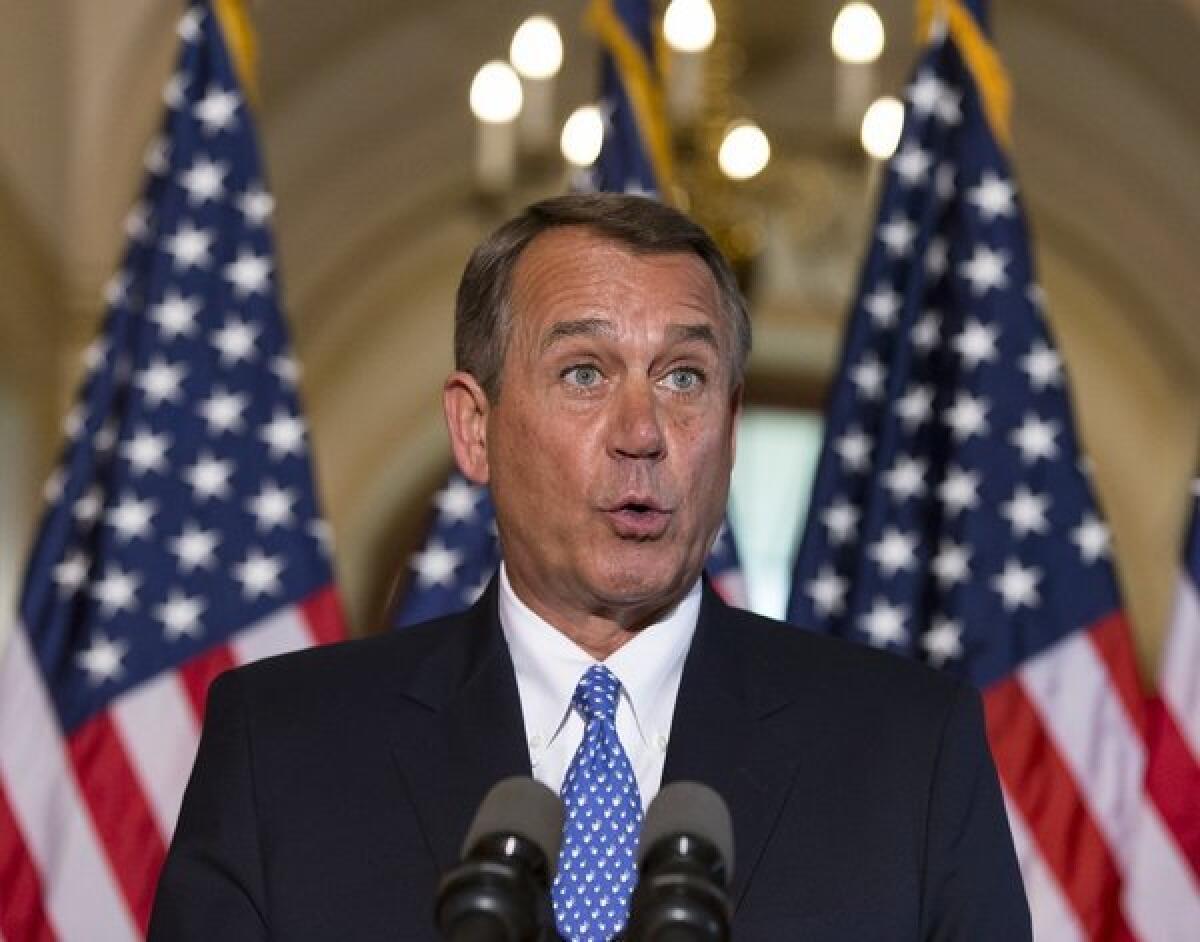5 things President Obama forgot to say about a U.S. default

During his news conference Tuesday about the fiscal standoff and the risks of a U.S. default, President Obama repeatedly cited Americans’ experience with their mortgages to explain why you don’t monkey with your credit rating.
If you don’t pay your mortgage, he said, you’re a “deadbeat.” You’ll find it harder to borrow in the future, and if you do get a loan, you’ll be paying a higher rate.
The problem is he’s not being scary enough. The consequences of a government default are truly terrifying. If he wants to get the House GOP off its collective behinds, he needs to tell the American people how terrifying. Here are five points he should have made:
1. “Do you have a floating rate loan? An adjustable mortgage or home-equity line? You’ll be paying more--possibly hundreds of dollars per month more.”
Adjustable rate loans are keyed ultimately to Treasury rates. Let’s say a default causes a spike in the index rate of half a percentage point--and it could be a lot more. On a $300,000 adjustable-rate mortgage every half-point increase in the rate will cost you nearly $100 more per month. Your credit card interest will rise too.
2. “Do you own stocks or equity mutual funds? Look out below.”
During the August 2011 debt-limit stalemate, stock prices fell by about 17%, according to a Treasury white paper on the effects of that crisis. They didn’t recover until well into 2012. Over the last few weeks, the S&P 500 index has fallen by 4% from its high Sept. 18. As the debt-limit deadline comes closer, expect for more losses. And if a default actually happens, the stock market drop could be twice or three times what was seen in 2011, when the country came close to a default but didn’t cross the line.
3. “Do you own money market funds? Expect a panic.”
These popular cash-like savings accounts are especially vulnerable to changes in short-term rates and to short-term panics. In 2008, the Treasury had to step in with a $50-billion guarantee to keep the funds from “breaking the buck”--that is, seeing their price per share falling below $1. This will be worse. Much worse. Money market fund investors should brace themselves.
4. “Saving for college or your retirement? You’ll have to wait a few years.”
The cratering of individual stock, bond, and savings accounts will mean horrific pain for Americans who are coming close to needing their nest eggs. There will be no escape. Stock markets will plunge, and bond markets will plunge. In 2008, people say their nest eggs slashed in value by almost half. If you need the money soon, you might have half of what you thought you had.
5. “Looking for a job? Fat chance.”
During the 2011 crisis, the Treasury observes, consumer confidence fell 22% and business confidence fell 3%. The credit markets seized up, making it impossible for small businesses to get loans for hiring or expansion. If you think it’s hard finding a job now, while we’re in a nominal recovery, wait till all your local businesses put their hiring plans on hold.
The most insane notion being bandied about by the tea party wing of the Republican Party is that a default would be no big deal. But as long as President Obama fails to communicate to all Americans the pure frightfulness of the consequences, they’ll go on saying that.
It would be a big deal, and every man, woman and child in the United States would feel it. There will be no safe harbor. It’s not just about rattling the financial markets. It’s us. President Obama needs to make sure every voter in every state hears the message.







